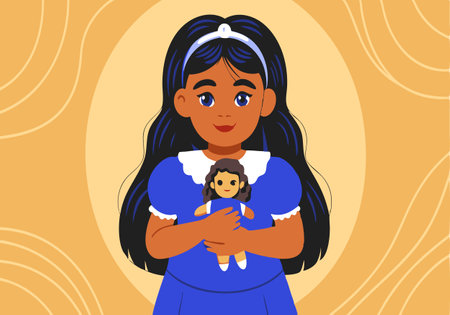Understanding Long Labour Pain in Indian Context
In India, childbirth is not only a medical event but also a deeply cultural and family-oriented experience. Long labour, often referred to locally as “lamba prasav” or “lamba dard,” is when the process of giving birth takes more time than usual—sometimes stretching beyond 12-24 hours for first-time mothers (called “prathama maa”) or even longer in certain cases. Prolonged labour can be physically exhausting and emotionally taxing for both the mother and her family.
The causes of long labour are varied. Common reasons include weak uterine contractions (“kamjor bachadani ki kasratein”), improper positioning of the baby (“bachche ka galat sthiti”), narrow pelvis, or anxiety and stress—often influenced by family expectations and traditional beliefs. In rural India, lack of timely medical intervention due to distance from healthcare facilities can also contribute to extended labour durations.
Statistically, prolonged labour is not uncommon in India, especially in areas with limited access to modern maternity care. Many women still rely on advice from elders, local midwives (“dai” or “sudharani”), and home-based remedies passed down through generations. Understanding these cultural nuances and common terminologies helps families support mothers better during this challenging phase and bridges the gap between traditional wisdom and modern medical guidance.
Traditional Indian Home Remedies for Labour Pain Relief
In India, generations of women have relied on time-tested home remedies to ease the discomfort of long labour. These traditional practices are deeply rooted in Ayurveda and local wisdom, utilising natural ingredients found easily in most Indian households. Below is a look at some widely trusted methods:
Mustard Oil Massage (Sarson Tel Malish)
A warm mustard oil massage on the lower back and abdomen is believed to improve blood circulation and relax muscle tension, which can help manage labour pain. This practice is particularly popular in North Indian homes, where elders recommend gently warming the oil before application.
Coriander Seed Water (Dhania Pani)
Drinking water boiled with coriander seeds is another cherished remedy. Dhania is known for its anti-inflammatory and soothing properties, which may help reduce uterine discomfort and calm the mind during prolonged labour. Strain the water after boiling and sip it warm for best results.
Other Popular Indian Remedies
| Remedy | How It’s Used | Potential Benefits |
|---|---|---|
| Ajwain (Carom Seeds) Steam Inhalation | Inhaling steam from ajwain-infused hot water | Relieves congestion and promotes relaxation |
| Desi Ghee with Milk | Consuming a spoon of ghee mixed in warm milk | Believed to lubricate birth canal and ease delivery process (folk wisdom) |
| Basil (Tulsi) Tea | Sipping tea made with fresh tulsi leaves | Calms nerves and may help in pain management |
Cultural Insights on Usage and Safety
While these remedies are cherished across Indian communities, it is important to consult with your doctor or midwife before trying any new practice during labour. Each woman’s body responds differently, and professional guidance ensures safe use tailored to individual needs.

3. Dietary Tips: Indian Foods to Ease Labour Pain
Nutrition plays a vital role in supporting women during long labour, and traditional Indian remedies offer several comforting dietary options. Consuming locally available foods and drinks can help maintain energy levels and may even ease discomfort during childbirth.
Jeera Water (Cumin Water)
Jeera water is a common home remedy in many Indian households. Prepared by boiling cumin seeds in water, it is believed to aid digestion, reduce bloating, and provide gentle relief from pain. Drinking warm jeera water can help soothe the stomach and support overall comfort during labour.
Ajwain (Carom Seeds)
Ajwain, another staple in Indian kitchens, is well-known for its ability to relieve cramps and improve digestion. Traditionally, ajwain seeds are boiled in water or mixed into herbal teas. This aromatic spice is thought to relax uterine muscles, potentially making contractions more manageable for mothers facing prolonged labour.
Herbal Teas
Herbal teas made with ingredients like ginger, tulsi (holy basil), lemongrass, or fennel are popular across India for their calming properties. Sipping on these caffeine-free teas helps keep the body hydrated while providing natural pain relief and emotional relaxation during stressful labour hours.
Cultural Comforts: Warm Milk with Turmeric
In many Indian families, drinking a glass of warm milk with turmeric before or during labour is encouraged. Turmeric contains curcumin, known for its anti-inflammatory benefits, which may assist in easing muscle aches and discomfort.
Important Note:
Always consult your doctor or midwife before trying new foods or remedies during labour, especially if you have specific health conditions or dietary restrictions.
4. Breathing and Relaxation Techniques Practised by Indian Mothers
Indian mothers have long relied on time-tested breathing and relaxation techniques to cope with the discomfort of long labour. These methods, rooted in traditional practices like pranayama and deep breathing, are often shared from one generation to another within Indian families. Here is a step-by-step guide to popular breathing and relaxation exercises that can bring comfort and help manage pain during prolonged labour.
Step-by-Step Guidance: Pranayama for Labour Relief
| Technique | How to Practise | Cultural Relevance |
|---|---|---|
| Nadi Shodhana (Alternate Nostril Breathing) |
|
Commonly taught by elders as a calming method before stressful events, including childbirth. |
| Bhramari (Bee Breath) |
|
Often practiced in South Indian households for anxiety reduction during labour. |
Deep Breathing: A Simple Indian Home Practice
- Sit upright or lean back supported by pillows.
- Place one hand on your chest and the other on your abdomen.
- Breathe in deeply through your nose, feeling your abdomen expand more than your chest.
- Breathe out slowly through pursed lips, focusing on releasing tension with each exhale.
- Continue for at least 10 breaths, repeating as needed during contractions.
The Importance of Relaxation Exercises During Labour
Mental relaxation is just as vital as physical comfort. Indian mothers often combine breathing techniques with simple meditation or guided visualisation. Close your eyes, imagine a peaceful scene such as a temple courtyard or riverside in Varanasi, and focus on slow, rhythmic breathing. Family members may chant soothing mantras like “Om” or offer gentle massages using coconut oil to further relax the body.
Cultural Tips for Maximum Effectiveness
- Ask an experienced female relative (such as your mother or mother-in-law) to guide you through these techniques; their presence can be very reassuring due to shared cultural wisdom.
- If you have access, play soft devotional music or shlokas in the background—many find this grounding during intense moments of labour pain.
- Remember that these practices are not only about reducing pain but also about connecting with generations of Indian women who have relied on similar home remedies for relief and strength during childbirth.
By incorporating these traditional Indian breathing and relaxation methods into your labour routine, you can ease the intensity of long labour pains naturally and foster a sense of calm throughout the birthing process.
5. Support from Family and Traditional Doulas (Dai Ma)
In Indian culture, the presence and active involvement of family members, especially elders like mothers-in-law or grandmothers, play a vital role during long labour. Their years of experience, practical knowledge, and comforting words can be immensely reassuring for the expectant mother. Elders often know traditional techniques such as gentle massages with warm oil, chanting mantras, or preparing herbal drinks (like ajwain water) that help ease labour pain and anxiety.
The Role of Experienced Dai Mas
Traditional birth attendants, known as dai mas, are respected figures in many Indian communities. With hands-on experience from assisting countless births, dai mas provide not only physical support but also emotional strength. They know how to encourage natural pain management methods—such as proper breathing techniques, correct positioning, and gentle touch—that help mothers cope with prolonged labour. Their calm presence and practical wisdom are invaluable in rural and urban settings alike.
Emotional Comfort
Both family elders and dai mas understand the emotional needs of women in labour. Their familiar voices and soothing advice reduce stress levels, which is crucial for a smoother delivery process. Simple gestures like holding hands, wiping sweat from the forehead, or offering reassuring words in local languages can make a big difference.
Practical Assistance
From preparing nourishing homemade foods to ensuring the birthing room remains calm and clean, the practical help offered by family members and dai mas cannot be underestimated. Their attentive care allows the mother to focus on her contractions while feeling supported and safe—a key factor in managing long labour pains effectively.
6. When to Seek Medical Help: Indian Advice
While many Indian families rely on home remedies and traditional support during labour, it is crucial to know when professional medical care becomes necessary. Recognising the signs of complications early can make all the difference for both mother and baby. Here’s some clear guidance tailored for Indian scenarios:
Understanding Normal Labour Progress
In a typical labour, contractions gradually become stronger and more frequent. If you are at home, surrounded by experienced elders or a dai (traditional birth attendant), monitor how things are progressing.
Common Home Remedy Scenarios in India
- Using warm compresses, herbal teas like ajwain water, or gentle massage to ease pain
- Listening to advice from mothers-in-law or local midwives
- Relying on prayers and traditional rituals for comfort
These methods can offer relief, but always stay alert for warning signs.
Warning Signs: Time to Visit the Hospital
- Labour Not Progressing: If strong contractions have continued for more than 12 hours (for first-time mothers) or 8 hours (for experienced mothers) with little progress, seek help.
- Excessive Bleeding: Any bleeding more than light spotting is a red flag—especially if soaking through pads quickly.
- Foul-Smelling Discharge: Could indicate infection; do not ignore this sign.
- No Foetal Movement: If you notice reduced or no movement from your baby for several hours, act immediately.
- High Fever or Chills: May point to infection requiring urgent care.
- Severe Headache or Blurred Vision: Possible sign of high blood pressure or eclampsia—seek emergency help.
Indian Context Examples
If you are in a joint family setup and your mother-in-law notices that you are getting exhausted, not eating, or losing consciousness between contractions, it is time to call your doctor or rush to the nearest hospital. In rural areas where transportation may be an issue, arrange an auto-rickshaw or ambulance beforehand as a precaution if any risks are present.
The Importance of Transitioning from Home Remedies
No matter how effective Indian home remedies may seem, remember they are best suited for mild discomforts and early stages of labour. Always prioritise safety—when in doubt, consult a qualified healthcare provider. Your well-being and your babys health come first. Do not hesitate to seek medical help if anything feels unusual during long labour.

